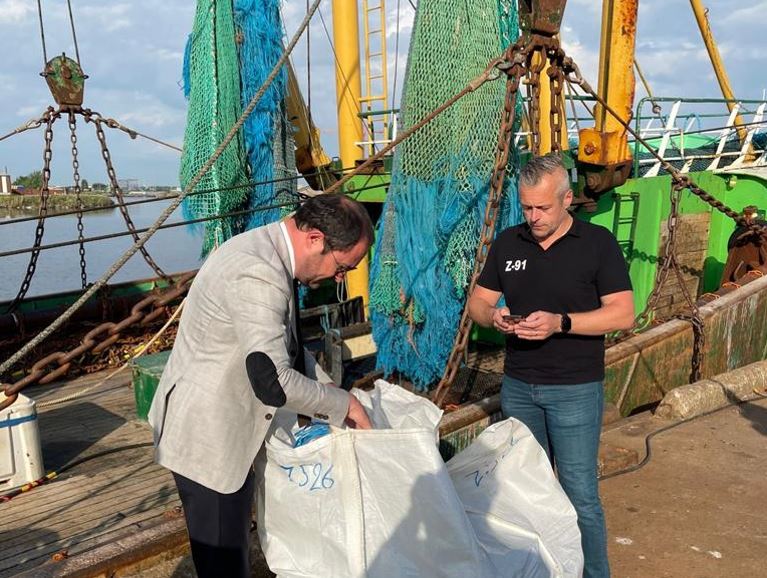Last year, Belgian fishermen fished a record amount of 65 tonnes of rubbish from the North Sea, which is more than three times as much as the year before, announced Federal Minister of the North Sea Vincent Van Quickenborne.
With the 'Fishing for Litter' project, fishermen collect all the litter that ends up in their nets. This is then weighed and registered in the harbour, before being disposed of.
"In 2021, three times more litter was fished from the sea than the year before. It shows that our fishermen are committed to keeping our North Sea clean," said Van Quickenborne. "Everyone must realise that dumping litter is not okay. Sooner or later, a lot of litter will end up in the sea via streams, rivers and sewers."
The 'Fishing for Litter' project started in Belgium in 2016, but Belgian fishermen who are taking part can also leave the waste at other participating European ports.
A growing problem
In 2017, Belgian fishermen brought 2 tonnes of waste ashore, a number that increased to 2.2 tonnes in 2018, 10 tonnes in 2019 and 17.7 tonnes in 2020.
To encourage even more fishermen to participate in the initiative, the Central Fisherman's Office and the Federal Government are putting extra effort into awareness-raising and communication, by launching a smartphone app for participating fishermen.
However, Belgian fishing vessels are not obliged to participate, according to Sander Meyns of the Rederscentrale shipping company.
Related News
- Weight of plastics in seas could exceed that of all fish by 2040
- Microplastics found in human blood for first time
- Cameras catch illegal dumping: 'Mainly locals in slippers and nightgowns'
"Removing sea waste helps preserve our ecosystem and also gives our fishermen more guarantee that they can do their job for decades to come," he said. "Since 2019, there has been intensive cooperation within the entire fishing industry, which has enabled us to achieve good results with Fishing for Litter."
Via a smartphone application, fishermen can efficiently register the area where they fished the waste, record what kind of waste it was and in which port it was dropped off. "Our objective is to motivate the majority of the fleet to take waste on board during each sea trip and to register this correctly," Meyns added.

